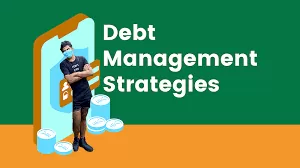Debt Management Strategies: How to Take Control of Your Finances
Debt can feel overwhelming, but with the right strategies, you can regain control of your finances and work toward becoming debt-free. This article will outline proven debt management strategies, from budgeting and negotiating with creditors to consolidating your debts and seeking professional help.

Key Sections to Cover:
- Understanding Debt: The difference between good debt (e.g., student loans, mortgage) and bad debt (e.g., credit card balances), and how each type affects your financial health.
- Creating a Debt Management Plan: How to assess your debt situation, prioritize your debts, and create a budget that allows you to pay down your balances effectively.
- The Snowball vs. Avalanche Method: A detailed comparison of these two popular debt repayment strategies, helping you choose the best one for your financial goals.
- Debt Consolidation: What debt consolidation is, how it works, and the benefits and risks of consolidating multiple debts into one loan.
- Negotiating with Creditors: How to negotiate lower interest rates, payment terms, or even debt settlements with your creditors.
- The Role of Credit Counseling Services: How professional debt counselors can assist you in creating a personalized debt management plan and work with creditors on your behalf.
- Avoiding New Debt: Tips for avoiding further debt accumulation, such as cutting back on unnecessary spending and building an emergency savings fund.
Conclusion: Managing debt effectively requires discipline, planning, and patience. By using the right strategies and seeking professional help when necessary, you can regain control of your finances and work toward a debt-free future.
What's Your Reaction?




















